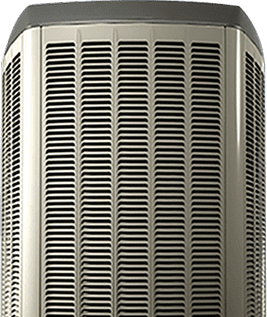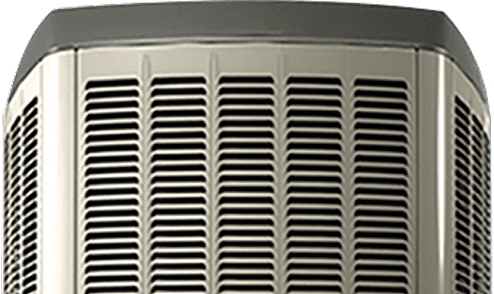Heating and Cooling Services Oshawa Homeowners Depend On
For over 60+ years, Limcan Certified Heating and Air Conditioning has delivered dependable heating and cooling services that Oshawa families rely on. Our licensed technicians keep homes comfortable and efficient year-round, through the coldest winters and hottest summers.
From furnace installation to air conditioner repair and complete HVAC system upgrades, our experienced team delivers fast, professional HVAC service with guaranteed results. When comfort matters, Limcan Certified Heating and Air Conditioning is the reliable name homeowners turn to.

For more details, read our reviews:
Read our reviewsFind a Home HVAC Technician Near You:
Proudly serving Oshawa and nearby communities, Limcan Certified’s HVAC technicians offer reliable heating, cooling, and indoor air quality solutions wherever you call home.

We know that time is critical when things go wrong.
We understand that time is critical when something goes wrong. That’s why the team at Limcan Certified Heating and Air Conditioning is always prepared to respond quickly to any heating, cooling, plumbing, or electrical emergency in Oshawa and surrounding areas. Whether it’s day or night, a weekend or a holiday, you can count on us to be there within hours.
Our licensed technicians are experienced professionals who specialize in HVAC, plumbing, and electrical services. From furnace breakdowns to air conditioner installations, we handle every job with precision and care. We know that unexpected problems can disrupt your day, which is why we’re committed to providing fast, reliable solutions that last. You’ll never wait long when you call Limcan—we’re always ready to help.
Find the Right HVAC Solution
Unsure which heating or cooling setup is right for your home? Our expert team will assess your home and recommend energy-efficient options that fit your comfort needs and budget. Whether you’re installing a new HVAC system or scheduling seasonal maintenance, we’ll help you make the right call.
Fast Service & Savings
Choosing the right HVAC system doesn’t have to be overwhelming. We’ll inspect your home and recommend the best solution based on your unique needs and budget. Whether it’s a brand-new install or a tune-up to keep things running well, we’ll be there in no time.
Experienced, Skilled & Ready to Help
We work with all makes and models of HVAC equipment and continue to train on the latest technologies to deliver the best service in Oshawa. From emergency service calls to long-term system care, Limcan Certified Heating and Air Conditioning is your go-to team for dependable heating, cooling, plumbing, and electrical solutions.
Limcan Certified Heating and Air Conditioning proudly serves Oshawa and the surrounding communities with expert HVAC technicians, delivering dependable heating, cooling, and indoor comfort solutions—wherever you call home.
Ready for fast, reliable service in Oshawa? Call Limcan Certified Heating and Air Conditioning today at (289) 274-4367 or schedule your appointment online.
Schedule a consultation for heating & cooling services in Oshawa.

Our HVAC Services
Maintaining a stable indoor climate goes beyond comfort—it’s essential for protecting your family and your home through Oshawa’s extreme seasonal shifts. At Limcan Certified Heating and Air Conditioning, we offer a full range of HVAC services tailored to meet the unique needs of homeowners in Oshawa and surrounding communities. Our experienced, factory-trained technicians are equipped to handle every aspect of heating and cooling—from professional installation and preventative maintenance to fast repairs and 24/7 emergency service. No matter the season, we’re here to keep your home running smoothly and comfortably.
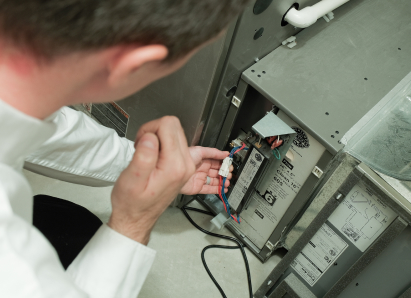
Heating Services
Boilers
Installation, maintenance, and 24/7 emergency repair services for both hot water and steam boiler systems.
Centralized Heating Systems
Full-service solutions for centralized systems, ensuring balanced and consistent heating across your home.
Furnace Installation
Expert furnace sizing, installation, and configuration to ensure optimal performance and long-term reliability.
Furnace Repair
Skilled repair services for all furnace models, with around-the-clock emergency assistance when needed.
Heat Pumps
Installation and maintenance of energy-efficient heat pump systems that deliver both heating and cooling throughout the year.
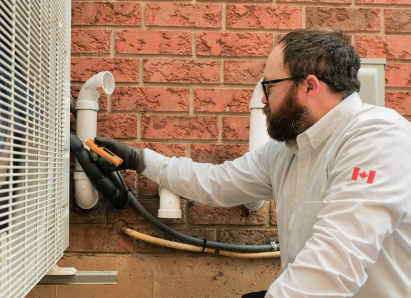
Air Conditioning Services
AC Installation
Accurate sizing, placement, and professional setup of air conditioning units to ensure peak performance and energy savings.
AC Inspection
Detailed inspections that identify problems early and help prevent mid-season breakdowns.
AC Repair
Prompt, expert repair services for all makes and models of AC systems, including emergency repair options.
Heat Pumps
Year-round comfort with efficient heat pump systems that provide both cooling and heating functions.
UV Air Purifiers
Installation and upkeep of UV air purification systems designed to reduce airborne contaminants and integrate with existing HVAC setups.
Humidifiers
Whole-home humidifier installation and service to help maintain ideal indoor humidity levels all year.

Water Heaters
Water Heater Repairs
Troubleshooting and repair for all types and brands of water heaters to restore hot water fast.
Water Heater Installation
Full-service installation of new, energy-efficient water heaters—including removal of your old system and proper hookup of the new one.
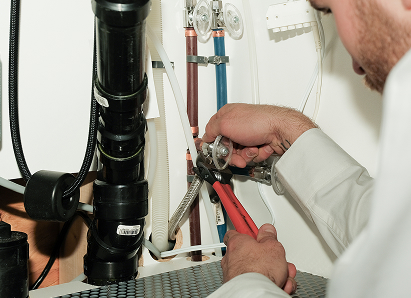
Plumbing Services
Faucets
Repairs and new installations of faucets in kitchens, bathrooms, and utility areas.
Emergency Plumbing Service
24/7 rapid-response plumbing services for urgent repairs and water issues.
Kitec Plumbing
Complete replacement of outdated Kitec piping systems to ensure safe, code-compliant plumbing.
Plumbing Repairs
Full-spectrum plumbing repairs, from small leaks to major pipe failures.
Sinks
Installation and servicing of all types of sinks, including kitchen, bathroom, and laundry room fixtures.
Sump Pumps
Installation, repair, and routine service of sump pump systems to help prevent basement flooding.
Toilets
Fast, clean toilet repairs and replacements with minimal disruption to your routine.
Water Quality
Advanced water filtration and softening solutions to improve your home’s water and protect plumbing fixtures.
Hydro-Jetting
Powerful water jetting technology that clears stubborn clogs and buildup from inside plumbing lines.
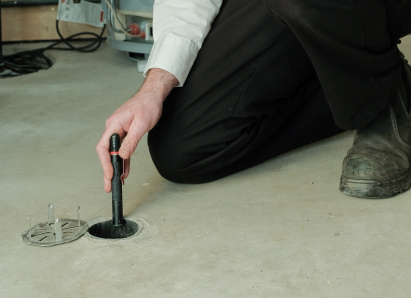
Drain and Sewer Systems
Water Cleanup & Restoration
Emergency services to clean up, dry, and restore your home after flooding or plumbing issues.
Waterproofing & Foundation Repair
Total solutions for waterproofing and structural foundation repairs to prevent water damage.
Exterior Basement Waterproofing
Systems designed to block water infiltration at the source—before it reaches your basement.
Sewer Subsidy Programs
Expert guidance to help homeowners access and benefit from available municipal subsidies for sewer and flood protection upgrades.
Drains
Routine maintenance and unclogging of drains to keep water flowing freely.
Oshawa’s Residential HVAC Experts
60+ Years of Proven Experience You Can Count On
Since 1964, Limcan Certified Heating and Air Conditioning has proudly delivered reliable HVAC services to homeowners and businesses across Oshawa. Our long-standing reputation is built on expert craftsmanship, reliable service, and a dedication to customer satisfaction. With thousands of installations and repairs completed, you can count on our experience to keep your property comfortable year-round.

24/7 Emergency HVAC Service
Comfort issues can arise at any time—that’s why we offer 24/7 emergency HVAC service in Oshawa. Whether it’s a heating failure on a winter night or a cooling issue during a summer heatwave, our team is ready to respond fast. We’re here to restore your comfort system when it matters most.
Certified, Background-Checked Professionals
Each Limcan technician is fully certified, professionally trained, and background-checked for your peace of mind. When our team enters your home, you can feel confident knowing you’re getting expert service from professionals who are respectful, qualified, and committed to high standards.
Upfront, No-Surprise Pricing
We believe in complete transparency. That’s why we provide detailed estimates before beginning any work. With our upfront pricing, there are no hidden fees or unexpected charges—just fair, straightforward service that respects your time and your budget.
Satisfaction Guaranteed
We back every service with a satisfaction guarantee. If you’re not completely happy with the heating or cooling solution we provide, we’ll do what it takes to address it. Your comfort and peace of mind are always our top priorities.
Complete Home Comfort Solutions
Limcan goes beyond traditional HVAC services. We provide integrated solutions to improve your home’s overall comfort and performance—from plumbing and electrical to indoor air quality and water systems. Our holistic approach ensures every system in your home works seamlessly together.
Hear from Oshawa Homeowners Who Choose Our HVAC Services
Clean, tidy
Arrived on time laid carpets down and booties.
Worked as a team and efficiently . Always so professional. Proper use of PPE.
